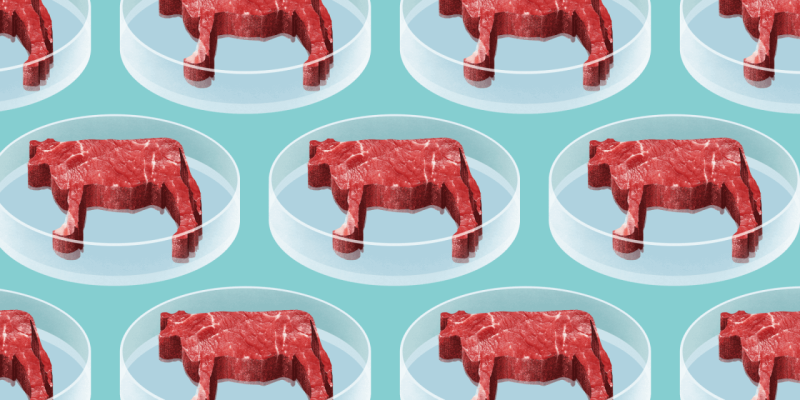Currently proposed types of lab-grown meat cannot provide a cure-all for the detrimental climate impacts of meat production without a large-scale transition to a decarbonized energy system, a new study has found.
The study, from the LEAP (Livestock, Environment and People) program at the Oxford Martin School, found that some projections for the uptake of particular forms of cultured meat could indeed be better for the climate, but others could actually lead to higher global temperatures in the long run.
Published in Frontiers in Sustainable Food Systems, their findings highlight that the climate impact of cultured meat production will depend on its energy demands and the availability of low-carbon energy sources.
…
Agricultural greenhouse gas emissions are responsible for around a quarter of current global warming. Replacing conventional cattle farming with ‘labriculture’ — meat grown in the lab using cell culture techniques — has been widely discussed as a way of reducing this environmental impact.
But these estimates are based on carbon-dioxide equivalent footprints, which can be misleading because not all greenhouse gases generate the same amount of warming or have the same lifespan.
Read full, original article: Climate-friendly labriculture depends on an energy revolution































